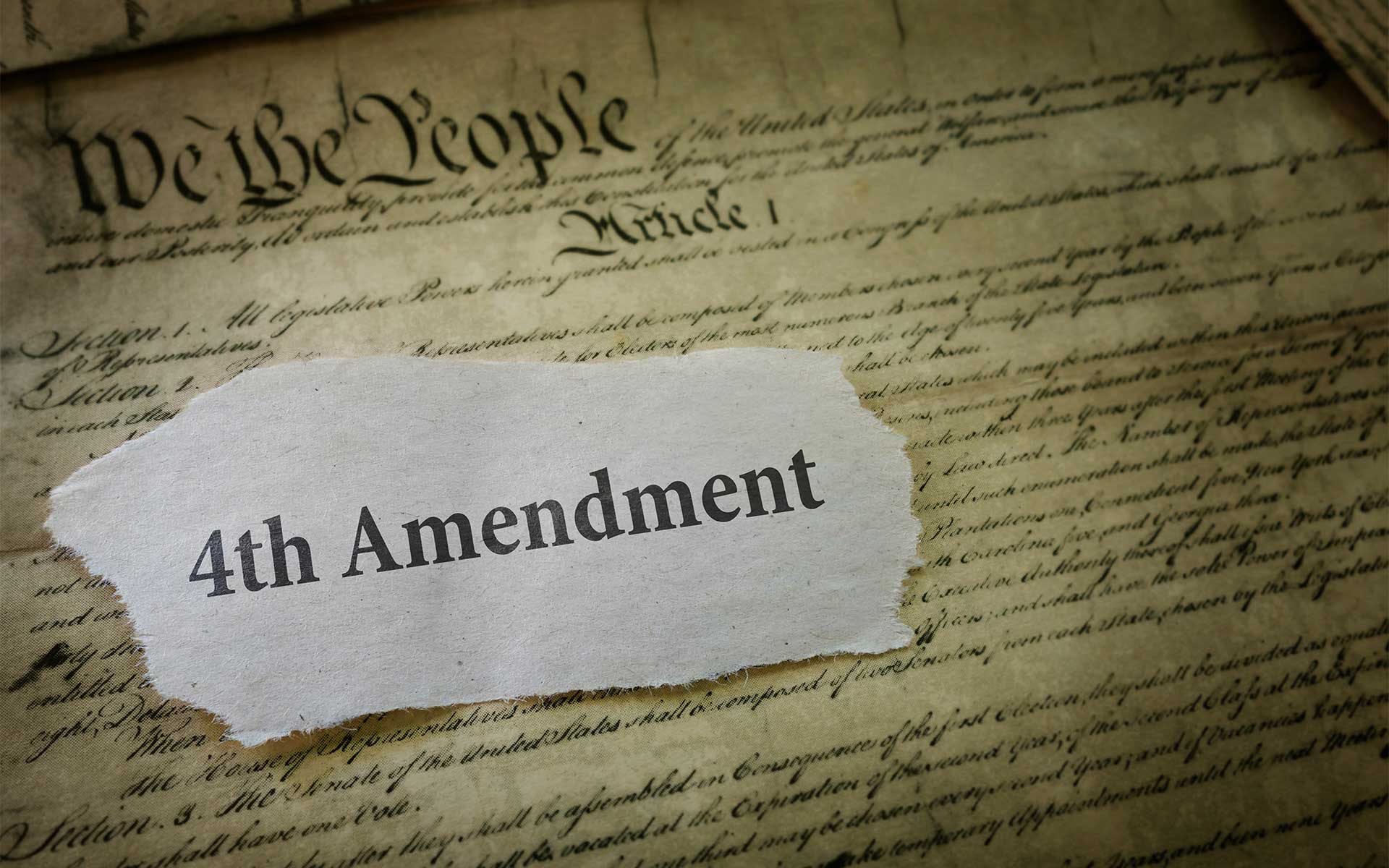
Our entire legal and political system is structured around guaranteed rights for citizens as outlined in the U.S. Constitution, ensuring no one is above the law. Recently, we covered why the Miranda Warning is critical to upholding our Fifth and Sixth Amendment rights as guaranteed under the U.S. Constitution. Every citizen, even those accused of criminal activity, has rights and protections that, when violated, can affect criminal court proceedings and their future.
However, most people outside the political and legal framework understand how the system works. For example, when is it legal for law enforcement to search a home or car? What is the warrant requirement in Texas? Today, we’re examining Texas search and seizure laws, including when a police search is warranted, unreasonable, or exceptions to the warrant requirement apply. We are all guaranteed a right to privacy under the Fourth Amendment. However, like most laws, circumstances often determine how protections are interpreted in court.
Your Rights Under the Fourth Amendment
The Fourth Amendment of the U.S. Constitution states: “The right of the people to be secure in their persons, houses, papers, and effects, against unreasonable searches and seizures, shall not be violated, and no Warrants shall issue, but upon probable cause, supported by Oath or affirmation, and particularly describing the place to be searched and the persons or things to be seized.”
Texas search and seizure case law protects these Fourth Amendment rights, in addition to the protections outlined under Article I, Section 9 of the Texas Constitution, which similarly states: “The people shall be secure in their persons, houses, papers and possessions, from all unreasonable seizures or searches, and no warrant to search any place, or to seize any person or thing, shall issue without describing them as near as may be, nor without probable cause, supported by oath or affirmation.”
In non-legal speak, these laws protect an individual’s privacy by mandating that:
- Searches and seizures by the government must be reasonable.
- A warrant is typically required for searches and seizures, supported by probable cause.
- Warrants must be specific about what is being searched and seized.
Therefore, unless an exception applies, the police may only search or seize private property after presenting a warrant. Understanding this law is especially critical when faced with criminal charges based on evidence gathered against you. Was the evidence obtained legally? If not, an experienced criminal defense attorney can use this information in court to help your case.
When is a Police Search Unreasonable?
Before we explain the general procedure surrounding warranted legal searches, let’s talk about when a police search is unreasonable or unwarranted. Both the US and Texas search and seizure laws provide that a search is unreasonable if the following circumstances apply:
- There was not a valid search warrant.
- The search does not fall under a recognized exception to the warrant requirement.
Warranted Search and Seizure
Search and seizure laws in Texas state that the search and seizure of private property is legally acceptable when accompanied by a warrant issued by a judge. However, law enforcement must follow a legal process to obtain a warrant. Here’s how it works.
The first step is demonstrating probable cause. When a search warrant is requested, the police must attach an affidavit outlining the facts and circumstances that create probable cause to search the private property, i.e., the possible crime prompting the search and the specific location(s) and items being searched. Next, the affidavit must be signed and submitted under oath to the judge who will review it. If the judge finds probable cause based on the affidavit, they will issue a search warrant.
What Types of Search and Seizure Cases Exist
Texas search and seizure laws apply to private property, such as homes, vehicles, storage units, lockers, papers, effects, and your person. They can also apply to phone records (Art. 18.0215). Basically, anything considered private property cannot be searched without a warrant unless an exemption applies.
Exceptions to the Fourth Amendment: Warrantless Searches

We’ve mentioned exemptions to Texas search and seizure laws several times, so let’s clarify when these apply. These exemptions validate warrantless searches. Therefore, any evidence collected in a scenario demonstrating one of the following exemptions can be valid in a court of law even though a judge did not issue a warrant for the search and seizure.
- The person or third party owner consented or agreed to the search.
- The evidence was in plain view.
- The police have good reason to believe that the destruction of evidence is imminent.
- The evidence was in a place where the defendant had no reasonable expectation of privacy, such as a trash can on the street (rather than in the home).
- The police officer seized the evidence to protect their safety.
- The police officer believed that a vehicle contained criminal evidence, i.e., probable cause.
Valid Searches and Seizures in Texas Without Warrants
Let’s look at a couple of examples where the warrant requirement doesn’t apply under search and seizure laws in Texas. One scenario includes when a police officer is making a lawful arrest. In this case, the Fourth Amendment permits the officer to search the suspect’s person, clothing, and all areas within the suspect’s immediate reach. This kind of warrantless search is justified because it allows police officers to protect themselves from suspects who may have hidden weapons.
Here’s another example of Texas search and seizure laws overriding the need for a warrant. Let’s say an officer stops a driver for speeding in a school zone. Typically, the officer will issue the ticket and move on. However, if the officer smells marijuana in the car while writing the traffic ticket, they have probable cause to legally search the vehicle without a warrant because recreational marijuana possession is still illegal in Texas.
Evidence Seized in Warrantless Searches
What happens to evidence seized during warrantless searches? If no exemptions apply, it can qualify as an illegal search and seizure in Texas. In these cases, the exclusionary rule applies.
What is the Exclusionary Rule?
The exclusionary rule protects individuals from unlawful search and seizure by prohibiting the prosecution from using evidence during a trial that was gathered in violation of search and seizure laws in Texas. So basically, any evidence obtained illegally, i.e., violating someone’s constitutional rights and obtained without a warrant when no exclusions apply, cannot be used by the prosecution in court under the exclusionary rule.
Furthermore, if the whole reason for your arrest was illegal or fraudulent and violated Texas search and seizure case law, the judge may dismiss or drop the charges against you. The bottom line is that search and seizure laws in Texas exist to protect every individual’s right to privacy. So, if law enforcement does not follow proper protocol during a Texas search and seizure, an experienced criminal defense attorney can use this to help your case in court.
What Are Illegal Search and Seizure Cases in Texas

Let’s look at State v. Garcia (2003) as an example of an illegal search and seizure case in Texas. Raul Garcia, the defendant, was stopped by the police in Houston for a traffic violation. During the stop, the officer asked to search Garcia’s car, and he refused. However, the officers proceeded to search his vehicle anyway – without obtaining a warrant – and they found illegal drugs.
Garcia’s attorneys challenged the search, arguing that it violated his Fourth Amendment rights. The Texas Court of Criminal Appeals agreed, ruling in his favor by determining that the search was unreasonable.
Under Texas search and seizure laws, a police search is generally considered unreasonable and unlawful or illegal under the following circumstances:
- Absence of a valid warrant.
- Lack of probable cause.
- Improperly issued warrants.
- Failure to adhere to warrant terms.
- The search is nonconsensual, without any exceptions.
If one or more of these scenarios apply, a defendant’s criminal defense attorney can file a motion to suppress any illegally seized evidence under the exclusionary rule.
In Need of Defense?
Texas search and seizure laws exist to protect the Fourth Amendment rights afforded by the U.S. Constitution. They are part of the legal checks and balances in place to protect citizens from misuse of power.
If the police have searched you or your property without a warrant – or you are under criminal investigation – it’s time to secure the help of an aggressive criminal defense team like GHC Law. We thoroughly understand the Texas legal system, including intimate knowledge of Texas arrest search and seizure laws. We will do everything possible to uphold your constitutional rights and fight for your future.
Contact GHC Law in Austin for a legal consultation today!
FAQ: Texas Search and Seizure Laws
Can you deny a search in Texas?
Yes, it is your legal right to deny law enforcement a search of your person, property, or vehicle if they do not have a valid warrant or a recognized legal basis for the search.
What are the 4th Amendment rights in Texas?
The Fourth Amendment’s constitutional rights protect individuals from unreasonable search and seizure in Texas. Furthermore, Article I, Section 9 of the Texas Constitution offers similar protections. Unless an exemption applies, law enforcement must produce a warrant to search a person or their private property.
What is probable cause to search a vehicle in Texas?
Probable cause to search a private vehicle in Texas involves a reasonable belief by law enforcement (based on factual evidence and reasonable inferences) that the vehicle contains contraband, evidence of a crime, or illegal items.


